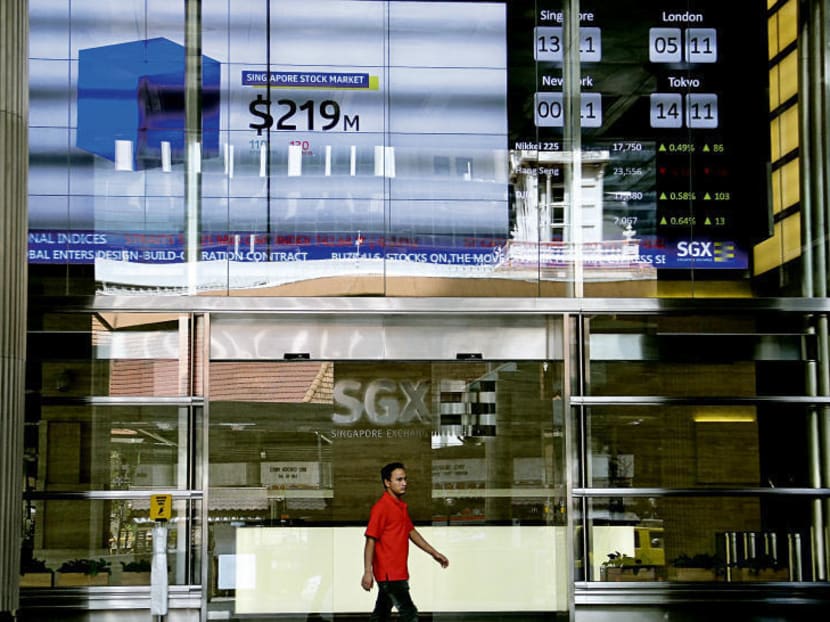Making a choice among ETFs, index funds and unit trusts
For people who wanted an easy way to invest in shares or bonds, unit trusts used to be almost the only option. Now, index funds and exchange-traded funds (ETFs) offer easy and cheaper alternatives. It is important to look at all the options and decide what fits you best.

Now, index funds and exchange-traded funds (ETFs) offer easy and cheaper alternatives to invest in shares or bonds. TODAY file photo
For people who wanted an easy way to invest in shares or bonds, unit trusts used to be almost the only option. Now, index funds and exchange-traded funds (ETFs) offer easy and cheaper alternatives. It is important to look at all the options and decide what fits you best.
UNIT TRUSTS
The basic concept of a unit trust is to pool money from many people for an investment with specific goals and parameters.
A fund manager then analyses potential investments, buys and sells a diverse set of shares or bonds, manages the portfolio and seeks to maximise the fund’s returns.
Investors in Singapore can choose from hundreds of unit trusts, in investments ranging from blue-chip Singapore shares or high-yield Asian bonds to Russian equities or global luxury companies. Whatever your investment taste may be, there is likely to be a unit trust flavour to match.
That expertise does come at a price though. Many unit trusts charge between 1 and 5 per cent initially and have annual fees between 1 and 2 per cent, regardless of performance. You may have to wait until the end of the day or longer to sell them, too, even if the market is plummeting.
INDEX FUNDS
A lower-cost variation of a unit trust is an index fund, which buys shares in companies in proportions that match a market index such as the Straits Times Index (STI).
A key advantage is that fees on index funds are usually far lower than those on unit trusts, since they are passively managed.
While data for Singapore is limited, research by the Investment Company Institute showed that expenses for a fund in the United States averaged about 0.82 per cent, compared to 0.09 per cent for index funds.
It is important to note, though, that performance simply follows the index used for a benchmark and goes up or down with the market.
EXCHANGE-TRADED FUNDS
ETFs are also pooled funds with specific parameters and a goal of providing returns similar to an index. However, there are several key differences with unit trusts.
ETFs are traded on a stock exchange, so you can buy or sell quickly and easily. Costs are also usually lower, with brokerage commissions often under 0.25 per cent, and management fees averaging 0.5 per cent or less, in part because there is no payment to a manager to select the investments.
If you decide to invest in ETFs, you need to be careful because some have complex structures. ETFs structured as “synthetic ETFs” include higher-risk derivatives that increase risk, for instance, and actively managed ETFs may incur higher costs.
COMPARISON OF RESULTS
Regardless of the structure, what many investors care about the most is results and risk.
While there are surprisingly few studies directly comparing the performance of unit trusts with ETFs or index funds here, investment research firm Kiplinger said that the typical active large-company US unit trust lagged the Vanguard Index 500 over the past one, three, five and 10 years.
Over the longer term, as Forbes contributor Rick Ferri found, only 40 per cent of actively managed equity funds have beaten indices annually since 2000 and an even-lower 27 per cent outperformed after 10 years.
John Bogle, the founder of investment management firm Vanguard, found that the performance of the five largest Vanguard broad market index funds in the US returned an average 1.6 per cent more than comparable ETFs.
Here in Singapore, investment advisory firm Motley Fool said that the SPDR STI ETF returned 220 per cent from April 2002 through to January 2018.
Additionally, State Street Global Advisors said that there is no significant research proving that ETFs carry significantly higher or lower risk than mutual funds.
As renowned investor Warren Buffet wrote in his 2016 annual report: “When trillions of dollars are managed by Wall Streeters charging high fees, it will usually be the managers who reap outsized profits, not the clients. Both large and small investors should stick with low-cost index funds.”
TAKING THE NEXT STEP
If you want someone else to manage your money, then choosing an index fund or an ETF can deliver higher returns at lower cost than a unit trust. Lower-risk investors can select investments based on the STI or foreign equivalents, while investors with a higher risk tolerance can make more exotic choices.
Here are a few key factors to consider when selecting an index fund or ETF:
1. Develop a clear financial plan with investment goals, time horizons and risk tolerance;
2. Read details of the ETFs or index funds to find ones that hold the right assets, are managed well, are licensed and match your goals;
3) Check the initial charge and management fees to make sure they are low. Investment research firm Morningstar said “the expense ratio is the single-most important data point when selecting funds”.
Talks at brokerage firms or libraries, webinars, and other educational programmes can provide more details about how and what to select.
Once you have decided what to invest in, you can easily invest online through platforms such as FundSuperMart or Phillip Securities’ electronic trading website Poems, or through a financial institution.
While there are risks of putting your money into index funds or ETFs, these investments can position you well for a more comfortable life ahead.






